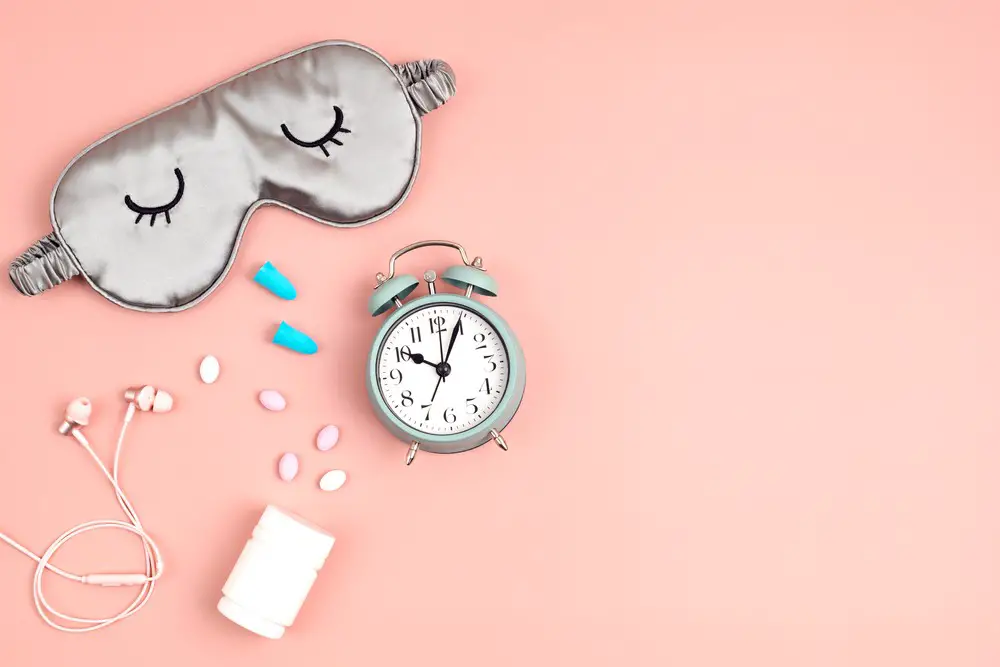As a BetterHelp affiliate, we receive compensation from BetterHelp if you purchase products or services through the links provided
Eight hours of sleep a night doesn’t necessarily mean that you are getting the most restful sleep because quality is just as important as quantity. Your sleep quality depends on what is happening during your hours of sleep, and the better the quality, the more restored you’ll feel, both physically and mentally.
How is Sleep Quality Measured?
Sleep quality is complicated to measure, and it is different to sleep satisfaction. In addition, individual differences and age affect sleep quality goals, but the National Sleep Foundation outlines the four basic sleep goals.
1. Sleep Latency
Sleep latency measures the time it takes you to fall asleep. The faster you fall asleep when going to bed, the better your sleep quality; it should take you 30 minutes or less.
2. Night Waking
Waking up often during the night can also reduce your sleep quality. Once or not at all is a good indicator of getting good sleep quality. If you wake up more frequently, these disruptions to your sleep cycle minimize your sleep quality.
3. Nighttime Wakefulness
The measurement of nighttime wakefulness records how long it takes you to fall asleep every time you wake up after you initially went to sleep. Anything over 20 minutes of wakefulness during the night will affect your sleep quality.
4. Sleep efficiency
Sleep efficiency means the amount of time you sleep while in bed. Optimal health benefits are reached if you spend more than 85% of your time in bed sleeping. Finding your sleep percentage is easy, even without a device to monitor your sleep. You minus how many minutes you spent awake and how many minutes it took you to sleep from your total bedtime to get your actual sleep time. Next, divide your entire bedtime by your actual sleep time, and multiply the answer by 100 to get the percentage of sleep efficiency. Don’t forget to make your calculations in minutes.
5 Best Ways to Monitor the Quality of Your Sleep
There are numerous types of sleep trackers that you can use to collect data for you while you sleep. These include wearable devices, bedside devices, and bed sensors. These collect information like your breathing patterns, heart rate, and movement, and some can even tell you if you slept lightly or deeply.
Besides clinical measures, these five devices are some of the best ways to monitor your sleep quality:
SleepScore Max
Designed by SleepScore Lab, the SleepScore Max is a contactless device placed on your bedside table. It is a plug-in device, and its accuracy relies on its proper setup to monitor the quality of your sleep. You use the device’s app to view your sleep scores, and the app gives you advice and recommends sleep products. The SleepScore Max has a one-time cost and no subscription.
Fitbit Sense Smartwatch
The Fitbit is a highly-recommended wearable device that has six days battery life. With several activity tracking capabilities, this smartwatch is a worthwhile investment since its sleep app also offers personalized sleep recommendations, helping to improve your sleep quality. In addition, it has a smart alarm to wake you up at the optimum time.
The Oura Ring
The Oura Ring is a discreet device for measuring your sleep efficiency. A sizing ring ensures you get the right size, and the device connects to Google Fit and Apple Health. It records your skin temperature, heart rate, variability to the heart rate, breathing rate, etc., and gives you a daily sleep score. The device also offers advice to help improve your sleep quality.
Whoop 3.0
This device consists of a minimal nylon strap with no display for tracking. The battery and sensors are in the buckle, and the device is rechargeable and waterproof up to 10 meters. The Whoop has a subscription and monitors your health and sleep on its app. Based on your sleep cycles and needs, you can set the haptic alarm to wake you up at the optimal time.
Sleepon GO2sleep Tracker
The Sleepon is another wearable device that measures sleep duration and quality. It also measures your blood oxygen levels and heart rate, and an alarm will ring if it detects anything amiss. The lightweight silicon device has a 24-hour battery life and syncs with iOS Health.
Best Ways to Improve Sleep Quality
You can improve your sleep quality with some simple strategies. You should always sleep in a dark room that has the ideal room temperature of between 60 and 67°F. Blackout curtains can help to block street lights and sunlight in the summer months. Specific lifestyle changes can also improve how you sleep, so add exercise to your daily schedule and drink less alcohol.
- 7 Ideas to Help You Relax and Unwind on a Family Vacation - April 27, 2025
- How Having Cybersecurity Protection Helps You Relax - April 25, 2025
- 8 Reasons Why Spending Time Outside Calms You Down - April 25, 2025
This site contains affiliate links to products. We will receive a commission for purchases made through these links.



